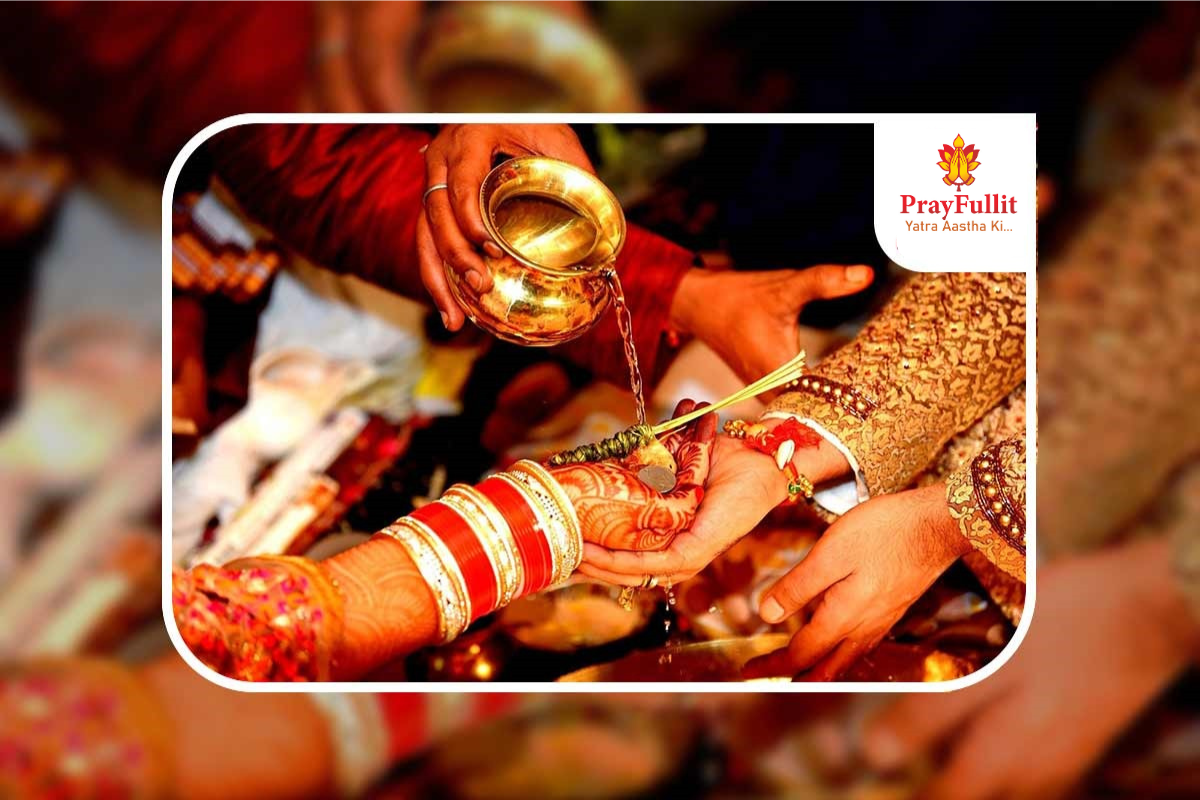
Vivah Sanskar, the Hindu Wedding Ceremony, is considered the most important of all the sixteen Sanskars. In Vedic tradition, marriage is not merely a social contract but a sacred union of two souls and the coming together of two families. The term "Vivah" literally means "to carry away" or "to support," signifying the groom's commitment to supporting his bride and their shared journey toward Dharma (duty), Artha (prosperity), Kama (love), and Moksha (liberation).
At Prayfullit, we provide highly experienced Vedic Pandits who specialize in performing authentic Hindu weddings. We ensure that every ritual—from the first Varmala to the final Saptapadi—is conducted with spiritual precision and traditional grace.
The Divine Significance of Vivah Sanskar
Essential Wedding Rituals
A Vedic wedding is a symphony of rituals, each with a profound meaning. Our Pandits guide you through every stage:
Preparation Checklist for the Wedding
Why Choose Prayfullit for Your Wedding?
Book a Pandit for Vivah Sanskar via Prayfullit
Start your journey of togetherness with the ultimate divine blessing. At Prayfullit, we make it easy to book expert Pandits for your wedding ceremony. Our verified scholars ensure that your Vivah Sanskar is performed with Vedic integrity, creating a foundation of peace, prosperity, and love for your married life.
Download the Prayfullit App
Empower your family life with Vedic wisdom. Book verified Pandits for home or venue visits and access our comprehensive range of spiritual services. Carry your traditions in your pocket, wherever you go.
In Basic package, 1 Pandit ji will be there and marriage is performed as per Shastras, This Package is recommended for those who wants Panditji for any one Side (Bride or Groom), also who wants to perform marriage with 1 Pandit ji in a short and simple way covering all the procedures.
In Standard package, 2 Pandits will be there and marriage is performed as per Shastras. This Package is recommended for those who wants Panditji for Both Bride and Groom Side and performed in a grand way.
In Premium package, 5 Vedic Pandits will be there and marriage is performed as per Shastras in a very grand way with 2 Pandits performing marriage and 3 pandits will be there for Ashirwachan. This Package is recommended for those who wants Panditji for Both Bride and Groom Side and marriage to be performed in a very very grand way.